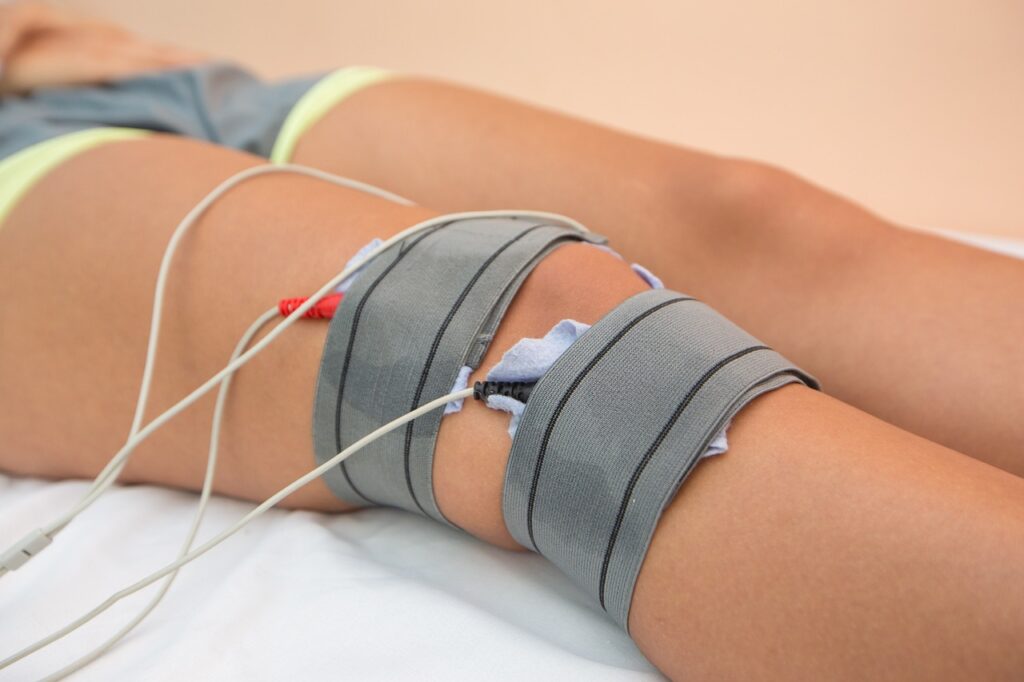
Knee Gel Injections: Understanding the Cost and Medicare Coverage. Knee osteoarthritis is a common condition that affects millions of individuals worldwide. One of the treatment options available for knee osteoarthritis is knee gel injections, also known as hyaluronic acid injections. This type of injection involves injecting a gel-like substance into the knee joint to help lubricate the joint and reduce pain. In this article, we will explore the cost of knee gel injections and Answer the question “Does Medicare Cover Gel Injections for Knees?”
What are Knee Gel Injections?
Knee gel injections, also known as viscosupplementation, involve injecting a gel-like substance called hyaluronic acid into the knee joint. Hyaluronic acid is a natural substance found in the synovial fluid that surrounds the joints. It acts as a lubricant, allowing the joints to move smoothly and reducing pain and inflammation.
How Knee Gel Injections Work
Knee gel injections are performed in a doctor’s office or clinic. Before the injection, the knee is cleaned and numbed with a local anesthetic. The gel is then injected into the knee joint using a syringe. The procedure typically takes less than 30 minutes, and patients can usually return to their normal activities shortly after the injection.
Effectiveness of Knee Gel Injections
Knee gel injections are an effective treatment option for individuals with knee osteoarthritis. They can reduce pain, improve joint function, and enhance the quality of life. However, the effectiveness of the injections may vary depending on the individual and the severity of their condition.
Gel Knee Injection Cost
Gel knee injection cost can vary depending on several factors, including the location of the injection site, the type of injection used, and the provider’s fees. On average, knee gel injections can cost between $500 and $1,300 per injection. Some individuals may require multiple injections over a period of time, which can increase the overall cost of treatment. Medicare part b will cover gel injections for knees with approval.
Does Medicare Cover Gel Injections for Knees?
Medicare Part B covers knee gel injections for individuals with knee osteoarthritis who have not responded to other treatments, such as pain medication or physical therapy. The answer to knee gel injections cost medicare cover is yes. However, Medicare only covers the cost of the injection itself, not any additional fees associated with the injection, such as the provider’s fees. A person getting injections should look at a Medicare supplement plan to cover the remaining costs that are not covered by original medicare. Aetna and AARP have Medigap plan G that will cover most of the remaining cost.
Eligibility for Medicare Coverage
To be eligible for coverage, the knee gel injection must be administered by a Medicare-approved provider and meet certain criteria. For example, the individual must have a diagnosis of knee osteoarthritis and have documented evidence of functional impairment or pain. If you are considering knee gel injections and are covered by Medicare, it is important to speak with your healthcare provider to determine whether you are eligible for coverage and to ensure that the injection is administered by a Medicare-approved provider.
What to Expect During Knee Gel Injections
During knee gel injections, patients may experience mild discomfort or pressure as the gel is injected into the joint. After the injection, patients may experience mild pain or swell at the injection site. These symptoms usually go away within a few days. Patients should rest and avoid strenuous activity for 24 hours after the injection.
Side Effects of Knee Gel Injections For Knees
While knee gel injections are generally safe, there are some risks and potential side effects associated with the procedure. These can include:
- Infection
- Bleeding
- Allergic reaction
- Joint stiffness
- Pain or swelling at the injection site
- The flare-up of underlying knee pain
It is important to discuss the potential risks and benefits of knee gel injections with your healthcare provider before undergoing the procedure.
Alternatives to Knee Gel Injections
While knee gel injections can be an effective treatment option for knee osteoarthritis, there are other treatment options available. These can include:
- Physical therapy
- Pain medication
- Knee braces or supports
- Corticosteroid injections
- Knee replacement surgery
Your healthcare provider can help determine the best treatment option for you based on your individual needs and medical history.
Knee Gel Injections vs. Knee Replacement
For individuals with severe knee osteoarthritis, knee replacement surgery may be necessary. Knee replacement surgery involves removing the damaged joint and replacing it with an artificial joint. While knee replacement surgery is generally more effective in reducing pain and improving function than knee gel injections, it is also a more invasive procedure with a longer recovery time.
Ways to Cover the Cost of Knee Gel Injections
If you are concerned about the cost of knee gel injections, there are several ways to reduce your out-of-pocket expenses. These can include:
- Checking with your insurance provider to determine coverage options
- Negotiating with your healthcare provider for a lower price
- Using a healthcare savings account or flexible spending account to pay for the procedure
- Researching financial assistance programs or grants that may be available
It is important to discuss your options with your healthcare provider and insurance provider to determine the best way to cover the cost of knee gel injections.
Knee gel injections can be an effective treatment option for individuals with knee osteoarthritis. While the cost of the injections can be a concern, Medicare does cover the cost of knee gel injections for eligible individuals. However, it is important to understand the criteria for coverage and any associated fees. If you are considering knee gel injections, be sure to discuss your options with your healthcare provider and Medicare to ensure that you receive the care you need.
